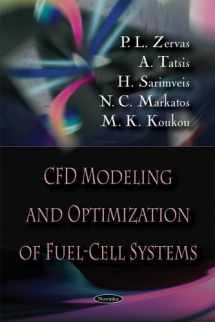
CFD Modeling and Optimization of Fuel-Cell Systems
Book details
Summary
Description
Fuel Cells appear currently as being one of the most promising technologies for power generation, due to the combination of benefits they offer. Fuel-cell systems are environmentally benign, highly efficient, flexible, durable and easy to maintain. The investigation of the impact of various process parameters on fuel cell operation is, thus, of particular importance. Many attempts have been made towards this direction. Among them, a popular and promising approach relies on the application of Computational Fluid Dynamics (CFD) techniques. In this book, the fundamental principles of fuel cells operation and the mathematical formulation of a generic CFD model -including transport and electrochemical phenomena are presented in detail. Sample results that illustrate the validity of the CFD model are presented next. A wide range of process-parameters values is examined, in order to investigate the influence of each one on the performance of the fuel-cell system. In order to reduce the size and improve the flexibility of the CFD model, a database containing the results of many runs is developed and is used to develop a simpler input-output model. The new model explores the highly non-linear relationships and reveals the mathematical correlations that exist between input and output parameters. Finally, nomograms generated from the developed input-output model are presented in detail which turns out to be a useful design tool for engineers interested in Fuel Cell Technology.


We would LOVE it if you could help us and other readers by reviewing the book
Book review



